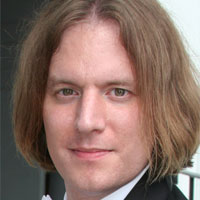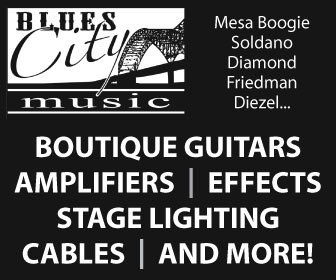green
X Jazz Musicians Get Creative
Creative people have a need to express themselves; often seeking multiple outlets with which to cultivate those expressions. Artists may work in different mediums, writers may use different forms and musicians may stretch into varying genres and undertake multiple projects.
The three members of New York-based green have made creating music a life-time endeavor, studying professionally, training with accomplished musicians, participating and music scenes around the country, and recording and performing as individuals and with different collaborations. All of these efforts seek to produce a new understanding of musical concepts and challenge the listener to accept sounds and rhythms unfamiliar to consumers of standard radio and pick-up club fare.
Many artists who seek to challenge their audience end up creating noise that is unlistenable or entirely forgettable. The challenge is to make the ear realize immediately that it is hearing something new, and immediately push to add the novel notes and phrases to its musical lexicon. A successful result is one of the greatest rewards a professional musician can achieve.
Vocalist Anna Dagmar is continuing to build on her own accomplished solo career; having already released a CD, "One More Time in the Air", which has gotten airplay on several radio stations in New York state. Born in Massachusetts, she survived high school piano recitals to earn a scholarship at the Eastman School of Music. Moving to New York, she has maintained a steady performance schedule, including participation in the NYC Songwriter's Circle.
Guitarist Aaron Jennings was born in Tulsa, Oklahoma, and earned his Bachelor of Music at the University of Southern California, releasing his first album as a part of the Los Angeles modern jazz scene. While he still performs in Los Angeles, Jennings moved to New York for the area's more diverse musical culture.
Don Peretz, the band's drummer and percussionist, started out playing cello in Los Angles, switching to percussion at age 10 and starting his musical education early at the Hamilton High School Academy of Music. Moving to New York in 1996, after earning a Deans' Scholarship to study at the University of Southern California, he attended the Manhattan School of Music before integrating himself into the city's progressive jazz scene.
Green seeks to fuse the discipline and style of modern jazz with the flowing improvisational nature of a jam band, throwing a good beat and a little electricity into the mix for good measure.
Billing their sound as "music for those who think the pop world is lacking and beyond", the trio spoke to Chorus and Verse about the formation of green and the goals of this impressive collaboration.
One interesting thing about green is that all three members are extremely active in other projects. Do you see green as a side project from your other endeavors, or a culmination of those efforts? What are you each looking to achieve in this setting that you might have not done so far in your careers?
Don: All of us have been quite active in improvised music, from jazz to free-form. In playing those kinds of music, the process is more important than the output. Green sort of encompasses both. The process in which we create the music for green is just as important to us as to what the output may be for the listener. Any project I am involved in will be a culmination of where I am at musically and personally. Green is no different. If the music can touch that one listener that we may have not been able to touch through other kinds of music, then it is a success.
We're going to discuss your personal histories a little bit, but can you start off with the story of how you all came together to form green, and what factors have drawn you together to create the band?
Don: I met Aaron about eight years ago in LA. Our musical tastes didn't seem to fit that city so, coincidentally, we both moved to New York. I had known Anna to be a jazz pianist and singer/songwriter in the NYC area and thought that her background may work well with Aaron's songwriting being that she's an improviser with jazz sensibility. A few sessions were set up between the three of us and the project spawned from there. All members of the group have been and continue to be inspired by different sorts of pop music even though we are considered jazz musicians. Green became an outlet for us to explore music within the boundaries of songwriting and popular music form.
[To Anna] You have already released a debut CD, "One More Time in the Air," which has gotten airplay in different parts of the New York State. How would you describe the sound of the music on the record, and how does it compare to the sounds you're creating with green? What are the plans for your solo career moving forward?
Anna: The music on my album, "One More Time in the Air," is a collection of my first songs, set acoustically - the lyrics in particular are very introspective. Although the instrumentation ranges from piano trio to rock guitar, to woodwind/string quartet, to brassy trumpet and sax parts, there are also several tracks which focus simply on piano/voice. I found, in these moments, I was able to capture my purest sound. In style, my solo music has a much less electronic sound than green, but as a band, we have been able to re-arrange some of my songs in our own way -- including "One More Time in the Air," and "All I Am is the Air I Breathe". I am still pursuing a solo career, and choose to perform this music in more jazz-oriented venues in NYC, such as Cornelia Street Cafe. More information on my album and solo gigs can be found at www.annadagmar.com.
[To Aaron] Your musical career has traveled from the heartland to both coasts, starting off in Tulsa, Oklahoma, to Los Angles and now New York. How has participating in music scenes from three different parts of the county affected your overall style, and what qualities have your experiences in each area added to your music?
Aaron: Well, I think I may have picked up a bit of a country/folky tinge from growing up in Tulsa. That's definitely where I made the choice to start playing telecasters, which is something I always thought was very "Tulsa" of me. Being in Los Angeles was a good experience also. I mostly focused on jazz while I lived there. The thing that was different about my experience in LA compared to my experience in New York was that most of the musicians that I knew in LA were other guitar players - rather than bass players or drummers. I think it can be interesting when you are surrounded by a scene of guitar players that are all influencing each other in unusual ways. However, I do feel that there are more musicians in New York that share my artistic vision, which is why I decided to settle in NYC. Here, I've met bass players, drummers, laptop players, etc., that have really influenced me the most, and have turned out to be players that I have worked with for a long time. It was in New York that I became interested in electronic/ambient music - and trying to incorporate those sounds into free jazz, pop, or whatever music that I'm playing.
[To Don] Your other main project is a group called Don Peretz Foremen, which is scheduled to release its own CD shortly. What styles and sounds will you be exploring on the CD, and what schedule are you working towards as far as recording and eventually releasing the disc?
Don: Foremen are a group that I front and write for. It's an instrumental quartet based on free-form jazz on simple original music to pop covers. My goal in recording Foremen is to capture moments. The music for that group is so mortal; it's here for only a moment due to its improvisational aspects. The studio served as a sort of net as opposed to a setting to explore in. Parts of the record are recorded, and as soon as enough material is complete a release date should follow soon after.
Is it difficult for musicians to be working on several different projects simultaneously and running the risk of everything sounding too similar, or more invigorating to have several outlets to try and experiment with different things? Is working in multiple forums a practical effort to have the widest range of opportunity available to you, or are you all simply unable to limit what you're looking to do to a single pursuit?
Don: The great thing about being involved in different projects is the variety of artistic outlets. Styles and influences always cross over, but to have different sorts of canvas' to paint on is freeing. I don't know if having multiple forums is so much for opportunity as it is for artistic outlet. I could never approach Foremen as I do green and vice versa. With that said, there never is a risk of projects sounding the same, as so much about each endeavor is so different - repertoire, instrumentation, musical approach, personnel, etc. It really is about creating differing forums to explore in.
All of you have extensive jazz experience, being involved with progressive jazz scenes and studying or performing with accomplished musicians. What are your feelings on the state of modern jazz? Specifically, why do you feel that jazz has been largely relegated to a niche of devoted fans, rather than the major popular mainstream sound of the middle part of the 20th century?
Don: The state of modern jazz functions in many ways as pop music but on a smaller level. You have the stuff that sells along with its image, and the more expressionistic music that has a smaller audience. In general, a lot of jazz music challenges a listener to go beyond what the pop music world has spoon-fed as music. Perhaps due to art and music programs being cut in education in the U.S., as well as not being stressed, many people don't have the tools to listen to all sorts of wonderful modern music. For example, the average person understands music to be tonal chord progressions underneath tonal melodies. If that is the extent of what one grasps as music, how can they be open to understand the function of atonality and free form, which is not necessarily any more complex than tonal music. And, of course, it is safe to say that certain corporate functions have a lot to do with what people listen to and why, [but that's] a whole other interview.
Sticking on that point, where do you see the genre progressing over the next few years? Even your bio describes the band as "X jazz musicians." Is there a double entendre there describing your goal of being more pop than jazz?
Anna: We do not imagine that the genre of jazz will die out, however, it will most likely remain a musical sub-culture, attracting specific listeners, much the way classical music does. The composers and players of jazz will always strive for new ways to expand the sound of the genre. Listeners seem to respond to music they can identify with, and it appears that a lot of people have trouble finding a relationship to jazz other than elevator or cafe music. The lack of support from the music industry feeds that problem; but it is circular, since a record company feels pressure to invest only in what sells. The members of green have not rejected playing jazz, but we feel our sound as a band can be better classified in other ways. In addition, the statement "X jazz musicians" does reveal an influence from that genre, which is certainly an element of our music.
Each of you have extensive formal musical training, at noted institutions such as Eastman School of Music and the University of Southern California. Having gained real-world experience as musicians, how well did your formal education prepare you to build a musical career, and how do you feel when you come across musicians who are entirely self-taught, or perhaps have minimal training, competing for the same gigs and opportunities that you are?
Anna: In a sense, all musicians are on the same playing field in terms of competing for gigs and opportunities. We know that, in many cases, it isn't how you sound, but how well you promote yourself. But as you mentioned, all of the members of green have sought high-level educations to develop as musicians. We believe that the quality and thought put into our music will allow it to stand out, and perhaps open the doors to unique possibilities in our careers. A concentrated education exposed us to so many musical areas to be inspired by and create from; perhaps some aspects that aren't found on the street.
Your demo consists of three songs, "You Don't Have a Say," "Stay in The Dark," and "More Beautiful than the Sun," which are all available for download as MP3s on your website. Where does the band stand in your songwriting, and are there any plans to record an album? When you perform as a group, do you only use material specifically written for green, or does music from your other projects get thrown into the mix?
Don: The group is constantly exploring and writing. By exploring, I mean improvisationally, as well as through written compositions. I would say we're all in a place where songwriting and evolving as musicians is our main course. We have plans to let a whole album create itself over time. Meaning, we'll record music as we feel necessary and let a record form somewhat organically. I feel playing live and having creative sessions is the true path to that organic product.
Virtually all the music played in green is written specifically for the group. We do have a couple of crossover tunes from Anna's solo projects.
Which venues have you been performing at in the city, and which have become your favorites? How do you feel the band fits into the current musical scenes taking place in New York these days, and how do you feel about the state of live music in New York overall?
Don: As in most major cities, the live scene can seem a bit over-saturated at times. A lot of venues don't invest a fair amount of promotion and stake into acts that they may book. Regardless of this, we like to pick venues that we enjoy playing and know our listeners enjoy hearing us in. The Bitter End and The Knitting Factory seem to offer opposite environments that we enjoy playing in; one being small and the other more of the standard rock-club-size venue. Even though we can fill rock-style venues with our sound, we tend to like to play smaller rooms that have a bit more connecting, intimate feel with the listeners.
The great thing about New York is that so much is going on and that there's so much to hear. People should try and check out as much music in as many different scenes as possible, from the avante downtown scene, to the songwriter clubs on Bleecker Street, to the 20th-century music programs at The Lincoln Center. That being said, I think green fits perfectly in New York, being that we seem to be on the borders of a few different scenes. I don't know if that'll alienate listeners or multiply them, but musically we couldn't be more inspired.
[ Website: www.annadagmar.com ]

Matt Mrowicki founded Chorus and Verse in 2001. He is a rock star designer and technologist, Internet professional, content creator, and entrepreneur specializing in web development, IT consulting, branding, social media and online marketing. www.imprtech.com









